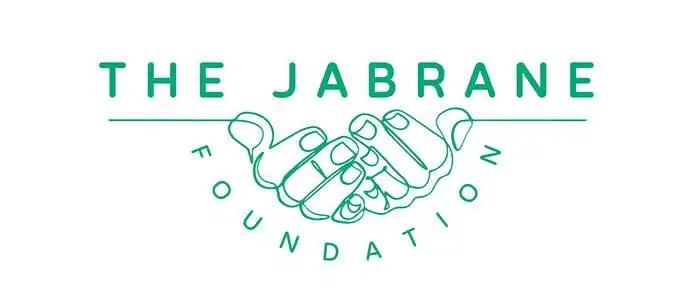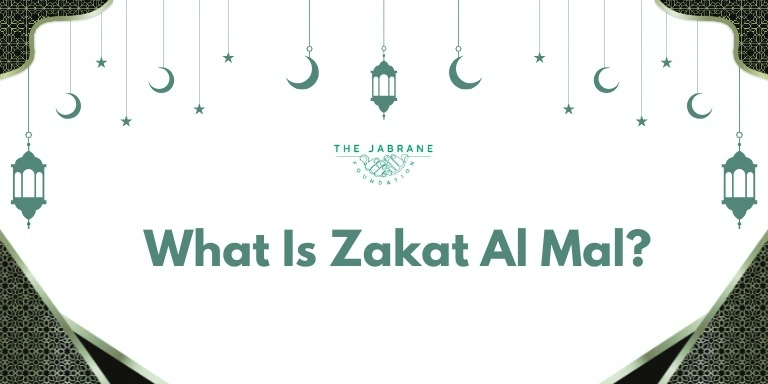Zakat is one of the five pillars of Islam, emphasizing generosity and social justice. It is a religious duty for Muslims who meet the required financial criteria. Among the different types of Zakat, Zakat al Mal is the most common, referring to the obligatory charity given on accumulated wealth.
Many people confuse Zakat al Mal with other forms of charity, such as Zakat al Fitr, which is paid before Eid. However, Zakat al Mal specifically applies to wealth that has been held for a full lunar year and meets the nisab (minimum threshold). Paying this Zakat not only purifies wealth but also helps those in need, making a significant difference in society.
What is Zakat al Mal?
Zakat al Mal means “charity on wealth.” It is an annual obligation for Muslims who possess wealth above the nisab threshold. This Zakat is meant to purify one’s earnings and redistribute wealth to reduce poverty.
Every Muslim who owns wealth beyond the nisab amount for a complete lunar year is required to pay 2.5% of their total zakatable assets. This act of charity is not just a duty but a way to cleanse wealth and increase blessings.
Types of Wealth That Require Zakat al Mal
Not all assets are subject to Zakat al Mal. The following categories require careful assessment:
1. Cash, Savings, and Gold/Silver
- Cash in Hand and Bank Accounts: Any money that is saved in cash, deposited in a bank account, or held in digital wallets is subject to Zakat if it reaches the nisab amount.
- Gold and Silver: Whether in the form of jewelry, bullion, or coins, gold and silver holdings must be assessed for Zakat. If a person owns gold or silver above the nisab threshold, they must pay 2.5% as Zakat.
- Foreign Currencies: If you hold money in foreign currencies, you must calculate its value in local currency to determine whether it meets the nisab threshold.
2. Business Assets
- Inventory: Goods and products that are kept for sale are zakatable. A business owner must calculate the total value of their inventory and pay 2.5% as Zakat.
- Profits and Revenue: Business profits are also zakatable. If these earnings remain unused and reach the nisab amount, Zakat must be paid.
- Accounts Receivable: If a business has given goods or services on credit and expects payments, these receivables are also included in Zakat calculations.
3. Agricultural Produce
1: Crops and Fruits: Farmers who harvest crops or grow fruits must pay Zakat. If the land is irrigated naturally (by rain), they must pay 10% Zakat. If they use artificial irrigation, the Zakat rate is 5%.
2: Livestock: Farmers who own animals such as cows, sheep, goats, or camels must calculate Zakat based on the number of animals they have. There are specific rules for livestock Zakat, and only those who meet a certain quantity are required to pay.
4. Stocks, Investments, and Rental Income
1:Stocks and Shares: If a person buys stocks with the intention of selling them, the total value of the shares is zakatable. However, if the stocks are held for dividends, only the dividends earned are zakatable.
2:Rental Properties: If a person owns a rental property, Zakat is paid on the rental income, not the property’s market value, unless it is bought for resale.
3: Retirement Funds and Pension Plans: If a person has retirement savings, Zakat is only due on the amount that is accessible and in their control.
5. Cryptocurrency and Digital Assets
1: Bitcoin and Other Cryptocurrencies: With the rise of digital currencies, many scholars agree that cryptocurrencies are zakatable if they reach the nisab amount and are held for a full lunar year.
2: NFTs and Digital Investments: If a person invests in digital assets such as NFTs or digital property, the Zakat calculation depends on whether these are bought for resale or long-term investment.
When and How Often Should Zakat al Mal Be Paid?
1. Zakat is an Annual Obligation
Zakat is not a one-time payment but a recurring responsibility that must be fulfilled once every year.
Who Must Pay Zakat?
Every Muslim who possesses wealth above the nisab (minimum threshold) for a full year is required to pay Zakat. This applies to adults of sound mind who own wealth in the form of cash, gold, silver, business assets, or other zakatable items.
Why Annually?
Islam mandates Zakat to be given annually because wealth accumulation and economic conditions change over time. By making it a yearly obligation, Islam ensures a consistent flow of assistance to those in need while encouraging individuals to purify their wealth and remain mindful of their financial blessings.
When Exactly Should It Be Paid?
Muslims can pay their Zakat at any time of the year, but they should fix a specific date annually based on when their wealth first exceeded the nisab. Many people choose Ramadan as the preferred month due to its spiritual significance, but Zakat is due whenever a full year has passed on the qualifying wealth.
2. Islamic Lunar Calendar vs. Gregorian Calendar
Zakat calculations should be based on the Islamic lunar year rather than the Gregorian calendar.
Why Use the Lunar Calendar?
Islam follows the Hijri (Islamic) calendar, which consists of 12 lunar months totaling approximately 354 days. This is about 11 days shorter than the solar-based Gregorian calendar, which has 365 days. Because of this difference, if one were to calculate Zakat based on the Gregorian year, they might delay their payment beyond the required time frame.
Ensuring Accuracy
To ensure accurate Zakat calculations, one must track their financial year using Islamic dates rather than waiting for a Gregorian anniversary. If unsure, many people consult Islamic scholars or use Zakat calculators that account for the difference between lunar and solar years.
Ramadan and Other Popular Times to Pay Zakat
While Ramadan is a popular time to pay Zakat because of the increased rewards for charity, it is not mandatory to pay it specifically in that month. The obligation remains based on the individual’s Zakat due date, which depends on when their wealth first exceeded the nisab threshold.
Full Lunar Year Requirement
Zakat is only due if wealth has been held above the nisab threshold for an entire Islamic lunar year (hawl).
What is Nisab?
Nisab is the minimum amount of wealth a Muslim must own before Zakat becomes obligatory. It is based on:
- 85 grams of gold or its equivalent in cash or other assets.
- 595 grams of silver or its equivalent.
- The nisab value fluctuates depending on market prices, so it’s essential to check current gold or silver rates before calculating Zakat.
Why Wait for a Full Lunar Year?
The one-year requirement ensures that only sustained wealth—not temporary or fluctuating income—is subject to Zakat. This means:
- If a person’s wealth falls below nisab during the year, the count restarts when it goes back above the threshold.
- Zakat is due once a person has maintained nisab-level wealth for a full Islamic year.
How to Track the Zakat Year?
A person should record the exact Islamic date when their wealth first exceeded nisab. Every year on that date, they should recalculate their wealth and pay 2.5% of their zakatable assets.
Example Scenario
If someone’s wealth first exceeded the nisab level on 10th Ramadan 1445, their Zakat would be due every year on 10th Ramadan as long as their wealth remains above nisab. If their wealth dips below nisab at any point, they should restart their tracking from the next time it exceeds the threshold.
Who is Eligible to Receive Zakat al Mal?
Zakat must be given to specific categories of people, as mentioned in the Quran:
- The Poor: Those who do not have enough financial means to support their basic needs.
- The Needy: Individuals who are struggling but may not ask for help.
- Zakat Administrators: People responsible for collecting and distributing Zakat.
- New Converts to Islam: Those who have embraced Islam and need financial support.
- Slaves and Captives: Historically, Zakat was used to free slaves and captives.
- Debtors: Those burdened with debts they cannot repay.
- In the Path of Allah: Zakat funds can be used for humanitarian causes and efforts that benefit the community.
- Stranded Travelers: Those unable to complete their journey due to financial difficulties.
A great way to ensure your Zakat reaches those in need is by donating to organizations like Jabrane Foundation, which provides direct assistance to the underprivileged.
The Spiritual and Social Benefits of Zakat al Mal
- Purification of Wealth: Zakat helps cleanse one’s earnings from any impurities.
- Increased Blessings: Paying Zakat brings divine blessings (barakah) to wealth.
- Helping the Needy: Zakat directly supports orphans, widows, and struggling families.
- Economic Balance: It prevents wealth from being concentrated among a few people and encourages redistribution.
By donating to Jabrane Foundation, you can contribute to these benefits while ensuring your Zakat reaches deserving individuals.
Common Misconceptions About Zakat al Mal
- “Zakat is only for the poor.” Zakat also supports other eligible groups like debtors and new converts.
- “Paying taxes exempts you from Zakat.” Taxes and Zakat serve different purposes; Zakat is a religious obligation.
- “Zakat is only due on gold and cash.” Many types of wealth, including business assets and investments, are zakatable.
- “Zakat is optional.” Zakat is a mandatory duty in Islam.
How to Ensure Your Zakat al Mal is Paid Properly?
- Track Your Wealth: Keep a record of zakatable assets throughout the year.
- Use a Zakat Calculator: Many online tools help calculate the exact Zakat due.
- Donate to Trusted Organizations: Ensure your Zakat is given to reputable charities like Jabrane Foundation.
Conclusion
Zakat al Mal is a fundamental part of Islam, ensuring financial justice and social support. By paying it, you fulfill a religious duty while helping those in need.
If you are eligible to give Zakat, consider donating to Jabrane Foundation, where your contribution will make a real difference.


